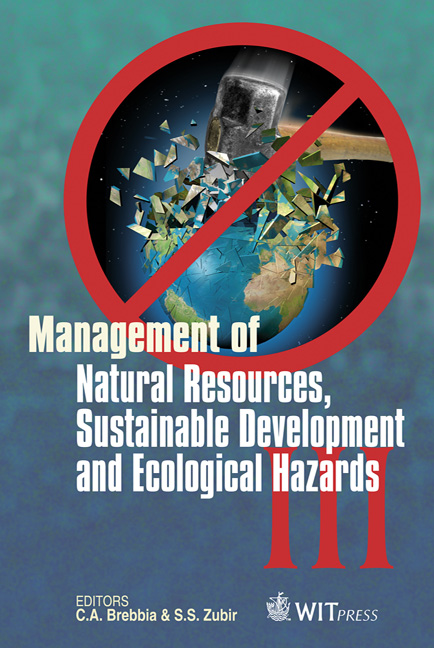Fiber Resin Matrix Composites: Nature’s Gift
Price
Free (open access)
Transaction
Volume
148
Pages
9
Page Range
131 - 139
Published
2011
Size
695 kb
Paper DOI
10.2495/RAV110131
Copyright
WIT Press
Author(s)
M. S. Liew, A. H. Shamsuddin & G. Z. Yew
Abstract
Timber is a natural product and is a material of choice in the construction industry because of its versatility as a temporary support material and as a finished material. It can be designed as load bearing as well as non-load bearing material. Alternatively, with the advent of compressed wood developed from the waste of the timber industries, a parallel approach is made to study the application of wood plastic composites (WPC) which have been developed for the past five years. The quality of the WPC varies due to the varying type of the sawdust derived from mixtures of hard and soft wood. The main compound in simulating natural wood is fiber which can be found naturally from the empty fruit bunches (EFB) derived from the oil palm industries found in Malaysia and Indonesia, two of the largest crude palm oil producers in the world. Malaysia and Indonesia contributed in excess of 100 million tons of waste generated from the Oil Palm Industry in the form of empty fruit bunch (EFB) and other fibrous waste generated in the extraction of crude palm oil. The micron sized fibers are integrated with selected grade resins including recycled resins if necessary and other non-carcinogenic chemicals stabilizers to form fiber resin matrix composites (FRMC). These FRMC can be used as construction materials and interior architectural finishes. FRMC materials are eco-friendly, sparing many trees and promote green technology. FRMC have been tested and exhibited superior mechanical properties to that of hard wood. Cost comparison had indicated that FRMC remains competitive to the hard wood. Keywords: fiber resin, composites, hard wood, empty fruity brunches, green technology, mechanical properties.
Keywords
fiber resin, composites, hard wood, empty fruity brunches, green technology, mechanical properties





